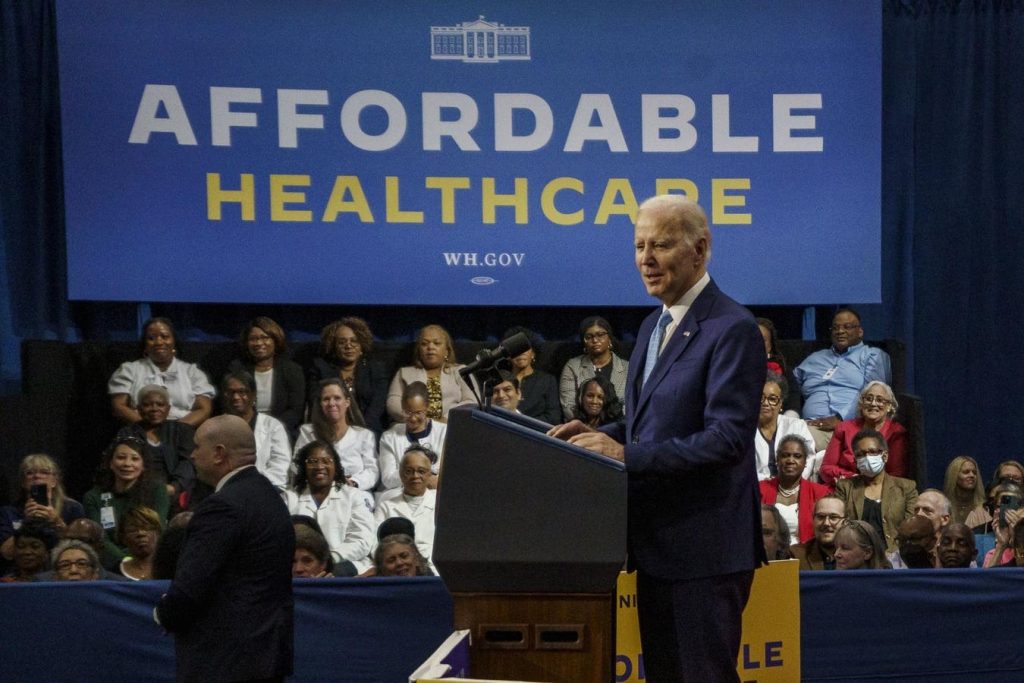Biden’s Healthcare Legacy: A Promise Unfulfilled?
President Joe Biden campaigned on a platform of restoring normalcy and improving healthcare access and affordability. However, a closer examination of his administration’s actions reveals a mixed bag of outcomes, with several significant shortcomings that could define his healthcare legacy. While some progress was made, particularly in expanding access to insurance during the pandemic, several critical missteps and unmet promises raise questions about the overall effectiveness of his healthcare policies.
One of the most controversial moves was the diversion of $266 billion from Medicare to fund green energy initiatives through the Inflation Reduction Act (IRA). While the IRA aimed to lower prescription drug costs, critics argue that diverting Medicare funds to subsidize electric vehicles represents a misallocation of resources. Furthermore, the IRA’s impact on drug prices has been criticized as too little, too late, with implementation not slated to begin until 2026. Concerns have been raised about potential negative consequences, including limiting access to critical treatments, incentivizing pharmaceutical companies to increase prices on other drugs, and increasing Part D premiums for seniors.
The unwinding of Medicaid expansion following the end of the COVID-19 public health emergency has left millions of Americans without coverage. While Medicaid enrollment is expected to return to pre-pandemic levels, concerns linger about the long-term impact on healthcare access, particularly for vulnerable populations like children. Coupled with fraudulent enrollments in ACA plans, costing taxpayers billions and distorting the insurance market, the administration’s efforts to expand coverage appear to have been undermined by significant implementation challenges.
The Biden administration also faced criticism for its handling of systemic issues plaguing the healthcare system. A lack of effective action on rising costs due to bureaucratic inefficiency, particularly within agencies like the NIH, underscores a failure to address fundamental problems. Critics argue that the administration’s focus on expanding federal control has discouraged state-level innovation and further entrenched bureaucratic hurdles that stifle efficiency and limit patient choice. The proposed overhaul of the NIH, while potentially beneficial, faces significant opposition from stakeholders invested in maintaining the status quo.
Deeply ingrained inequalities in healthcare access persist, disproportionately affecting low-income individuals. Despite economic improvements, many Americans still face barriers to quality healthcare, including lack of insurance, high costs, limited access to providers, and educational disparities. The administration’s efforts to address these inequalities have been deemed insufficient, leaving many vulnerable populations without adequate access to essential care. Additionally, the administration’s policies have done little to encourage physician participation in Medicare and Medicaid programs, exacerbating existing shortages and potentially compromising access to care for beneficiaries.
The Biden administration’s approach to healthcare reform has been characterized by restricted ambitions and a failure to meet expectations. Critics argue that the IRA, while achieving some success in reducing insulin prices, may ultimately disincentivize new drug development by implementing price controls. This could lead to a decrease in the availability of generic medications and potentially higher prices for consumers. Furthermore, the administration’s Medicare proposals have been accused of exacerbating the program’s financial woes, potentially leading to higher costs and unsustainable spending in the long run. The projected depletion of the Hospital Insurance Trust Fund within the next decade adds further urgency to addressing these fiscal challenges.
A final concern revolves around the lack of clear leadership in healthcare. While the days of centralized authority under figures like Anthony Fauci and Francis Collins are over, the absence of a clearly defined federal healthcare leader with the experience and authority to navigate complex challenges has created a sense of rudderless direction. This lack of leadership has contributed to a perception of fragmented policy-making and an inability to effectively address systemic issues plaguing the healthcare system.
In the waning days of his presidency, the Biden administration faces the challenge of defining its healthcare legacy. While some progress has been made, significant shortcomings and unmet promises loom large. The incoming administration, promising to dismantle the current healthcare infrastructure, has the opportunity to learn from the mistakes of its predecessor and chart a new course for healthcare in the United States. The question remains whether they will seize this opportunity and address the fundamental challenges that continue to plague the system, ensuring equitable and affordable access to quality healthcare for all Americans.






